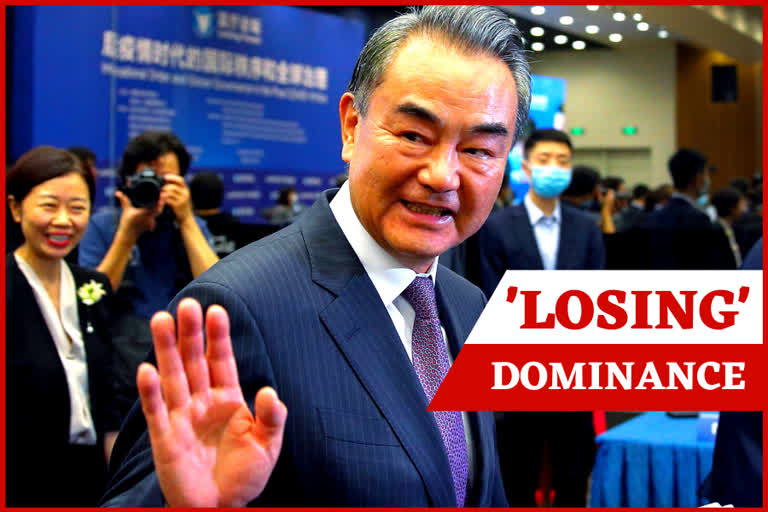Kuala Lampur: The US poses a "huge security risk" to Asia by pushing to boost engagement with the region, China's Foreign Minister said on Tuesday during a tour of Southeast Asia, where Beijing and Washington are locked in a battle for influence.
Speaking in Malaysia, Wang Yi said the US's real aim is "to build an Indo-Pacific NATO," in a strategy he said harkened back to the Cold War.
Washington is trying to "stir up confrontation among different groups and blocs, and stir up geopolitical competition while maintaining the predominance and hegemony system of the US," Wang said at a joint news conference with his Malaysian counterpart, Hishammuddin Hussein.
"In this sense, this strategy itself is a huge security risk," Wang said.
Wang also urged Southeast Asian nations, which are aiming to draw up a code of conduct with China in the South China Sea, to remove "external disruption" in the disputed waters, but did not elaborate.
Read also: US, Australia, India, Japan discuss China's growing power
Wang's tone is typical of China's increasingly hard-line approach to disputes with Washington as it seeks to capitalize on political divisions within the US and a perceived decline in America's global influence to advance its own foreign policy aims.
China's aggressive moves to assert its territorial claims in the South China Sea, through which a third of global shipping passes, have drawn rebuke from the United States and become a flashpoint for a region in which Southeast Asian nations Vietnam, the Philippines, Malaysia and Brunei all have rival claims.
Read also: Quad countries set focus on thwarting China aggression
Hishammuddin said the disputes over the South China Sea must be resolved peacefully through regional dialogue.
The US said that its Indo-Pacific engagement framework supports sovereignty, transparency, good governance and a rules-based order, among other things.
By using the term "Indo-Pacific," the U.S. also wants to propagate the idea that the region stretches far beyond China's backyard and the tiger economies of East Asia to include the Indian Ocean.
AP



